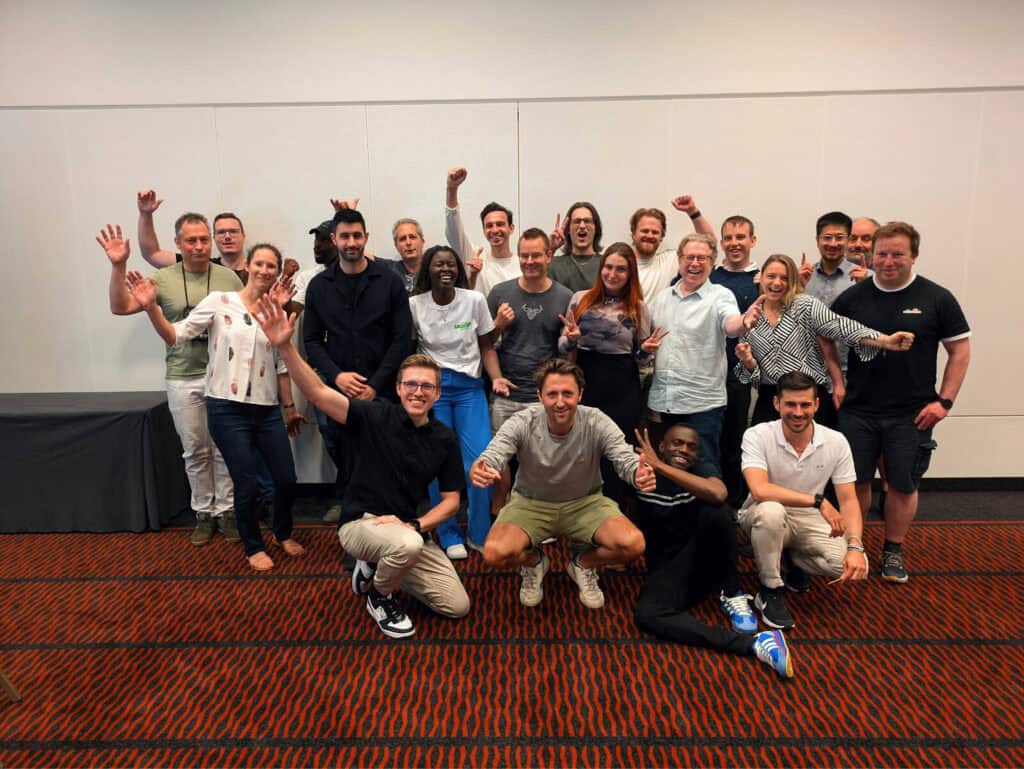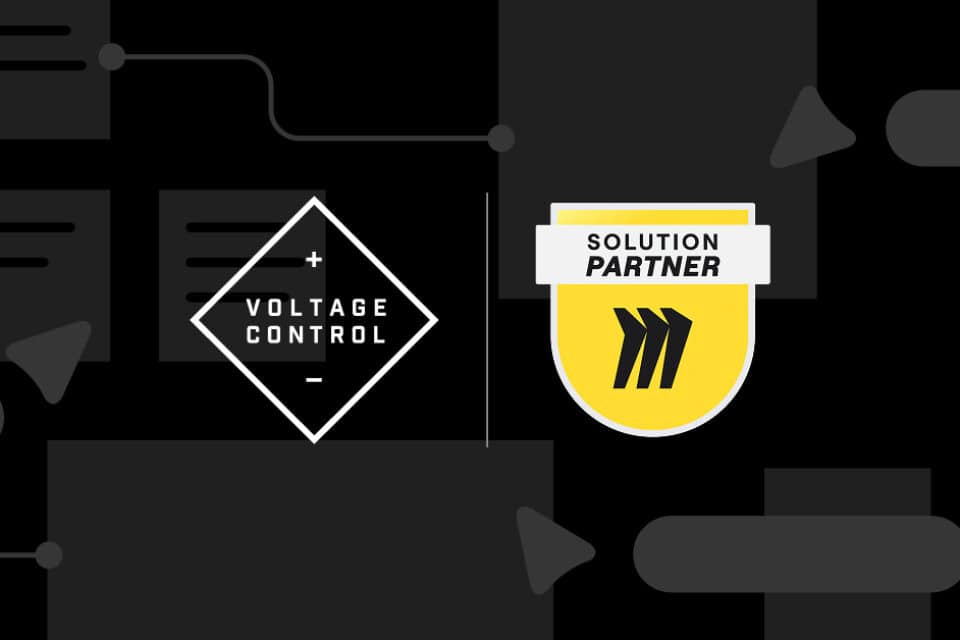Table of contents
Cryptocurrency and blockchain networks are some of the most rapidly evolving technologies today, challenging established processes and systems in favor of an ever-evolving, democratic trajectory. This trend is exemplified by blockchain platform Cardano’s recent transition to community-led on-chain governance, the result of two years of planning and five months of intense global collaboration.
This historic accomplishment was made possible thanks to dedicated facilitation from Voltage Control. Our certified facilitators traveled around the globe and dialed into hybrid events in order to ensure that the voices and feedback of thousands of participants were heard through a well-coordinated and successful collaboration.
Both our facilitation team and contributors from the Cardano community agree: the Cardano Constitution project was like nothing before. Its success offers far-reaching implications for not just the blockchain industry but also for facilitation, tech, finance, and organizations in both the public and private sectors.
A comprehensive overview of the process behind the Cardano Constitution can be read in our exclusive case study, available for download here.
In this article, we break down the essential takeaways for the future of blockchain and its overlap with facilitation practices.
Blockchain Technology in 2025
Blockchain is a distributed, decentralized, and immutable public ledger that enables secure transactions across a peer-to-peer network. Put simply, it is a secure database to record transactions and manage assets that can be transparently accessed by network participants. Each transaction on the network is recorded as a “block” of data.

Blockchain technology originated in 2008, born from the infrastructure behind Bitcoin, but, today, blockchain applications go far beyond cryptocurrency. Blockchain use cases include:
- Supply chain management
- Central Bank Digital Currency (CBDC)
- Healthcare records
- Internet of Things (IoT)
- Smart contracts
- Non-fungible Tokens (NFTs)
- Digital identity
Facilitators, thought leaders, and business professionals across industries can benefit from understanding and embracing blockchain and its features, including interconnectivity, Decentralized Finance (DeFi), and cryptography.
Danielle Stanko from Cardano discussed the value of this process as it extends beyond Web3, saying, “To me, not only are we really leading the way in the blockchain industry, but it’s a model worth looking at for any industry with difficult problems to solve… It’s really taking advantage of the diversity of thought, the diversity of experience across the world that people have had… empowering them, giving them a system that is more engaging to be part of and just better for people.”
Key Pillars of the Cardano Constitution Project
The Cardano Constitutional Convention took place from December 4 to December 6, 2024, in Nairobi, Kenya, and Buenos Aires, Argentina, with additional remote attendees from around the globe. The event was the culmination of two years, including five months of Community Workshops and Global Synthesis Workshops involving thousands of participants.
The process behind the Cardano Constitution gave a clear snapshot into the world of blockchain, displaying what it offers to other industries and how facilitation can be optimized for Web3. Let’s explore the key pillars of this process.
Global Collaboration
The Cardano network is accessible by any internet user, no matter where they live. The future of blockchain is clearly multinational, and the politics of blockchain continue to develop in real-time as the industry grows and adapts.
Each participant brought their own cultural backgrounds, personal experiences, languages, and values to their workshops. Facilitators had to balance these personal considerations with the goals of the project, and Cardano hosts had to keep in mind the regulations and expectations of the participants’ different countries.
Cardano Co-founder Charles Hoskinson identified how participants built strong connections with one another, explaining, “They’ve made lifelong friends and those delegates that went to the Constitutional Convention, they’re still talking to each other.”
The Cardano Constitutional Convention and preceding Community Workshops affirmed that successful global collaboration was possible. The Cardano Constitution was ratified by delegates at the Constitutional Convention with 95% approval, and then later voted for on-chain with 85% approval.
Iterative Approach
An iterative approach to governance means governance is introduced incrementally, with regular, designated opportunities for feedback and continuous improvement. This method is especially effective for organizations moving towards decentralization, as it allows for sufficient time for feedback and review from wide swaths of participants.
During Community Workshops, this iterative approach meant workshops participants were assigned a few focused questions regarding the Constitution text to review rather than attempting to evaluate the entire document. Over the course of five months, the workshops eventually compiled feedback for the entire governance draft.
Cardano Co-founder Charles Hoskinson highlighted how the approach to this project supports long-term success, saying, “The bigger achievement is an iterative process where year by year people continue to come together, it gets larger and more meaningful, and then you treat it like an open source work project.”
In the future, Cardano will continue to leverage an iterative approach to further develop governance and other network transformations. The ecosystem will build upon previous progress for a future of sustainable growth.
Decentralized Governance
Public blockchain is inherently decentralized, meaning it’s not owned by a single person or organization. The application and success of this decentralization can vary by network, and, for Cardano, it was important to create a governance structure that used sustainable, equitable decentralized decision-making.
Decentralization is a core pillar of Web3. Blockchain technology, cryptocurrency, and other Web3 products offer the opportunity to take power away from central authorities and instead distribute to a decentralized network. Decentralization in Web3 is trustless, meaning users do not need to place their trust in any one authority, and open to all to participate in.
Decentralized decision-making has beneficial applications well beyond Web3 and the blockchain industry, with its benefits including increased innovation, faster decision-making, improved accountability, and empowered participants.
Engagement and Participation
The process to create Cardano governance would only work if community members from around the world would actively participate in the events and decision making. Participants exceeded those expectations, approaching the process with enthusiasm and thoughtfulness.
The facilitators ensured that every voice was heard, leveraging different facilitation techniques and methodologies to make the most of the participants’ time and feedback. Facilitator Britta Wulfekammer explained, “My role was to make sure we get everyone to speak.” She balanced cultural differences and different power dynamics in order to make the process as successful as possible.

Today, Cardano governance is community-driven, prioritizing transparent decision-making that engages the community through liquid democracy. It offers a blueprint for success to other blockchain networks and decentralized organizations.
What Facilitators Need to Know
The future of Cardano offers plentiful insights into the future of blockchain technology, all of which is made possible by effective facilitation. Blockchain technology and Web3 are only going to continue to grow alongside other rapidly accelerating technologies, such as artificial intelligence.
The process behind the Cardano Constitution can be applied to countless industries and organizations, from private enterprises dabbling in blockchain to global nonprofit organizations applying the principles of decentralization. Cardano itself served as a proof of concept as it became the first network to have on-chain governance that was created collaboratively and approved through an on-chain ratification.
The facilitators from Voltage Control were alumni from our Facilitation Certification Program. They came equipped with the facilitation skills, techniques, and methodologies in order to succeed in this important project. To get a taste of our community, attend Facilitation Lab, a weekly virtual meetup of the facilitator community, and explore Community Hub, a dynamic space for networking, learning, and developing as facilitators.
To read a complete breakdown of the process behind the Cardano Constitution, download our case study.


